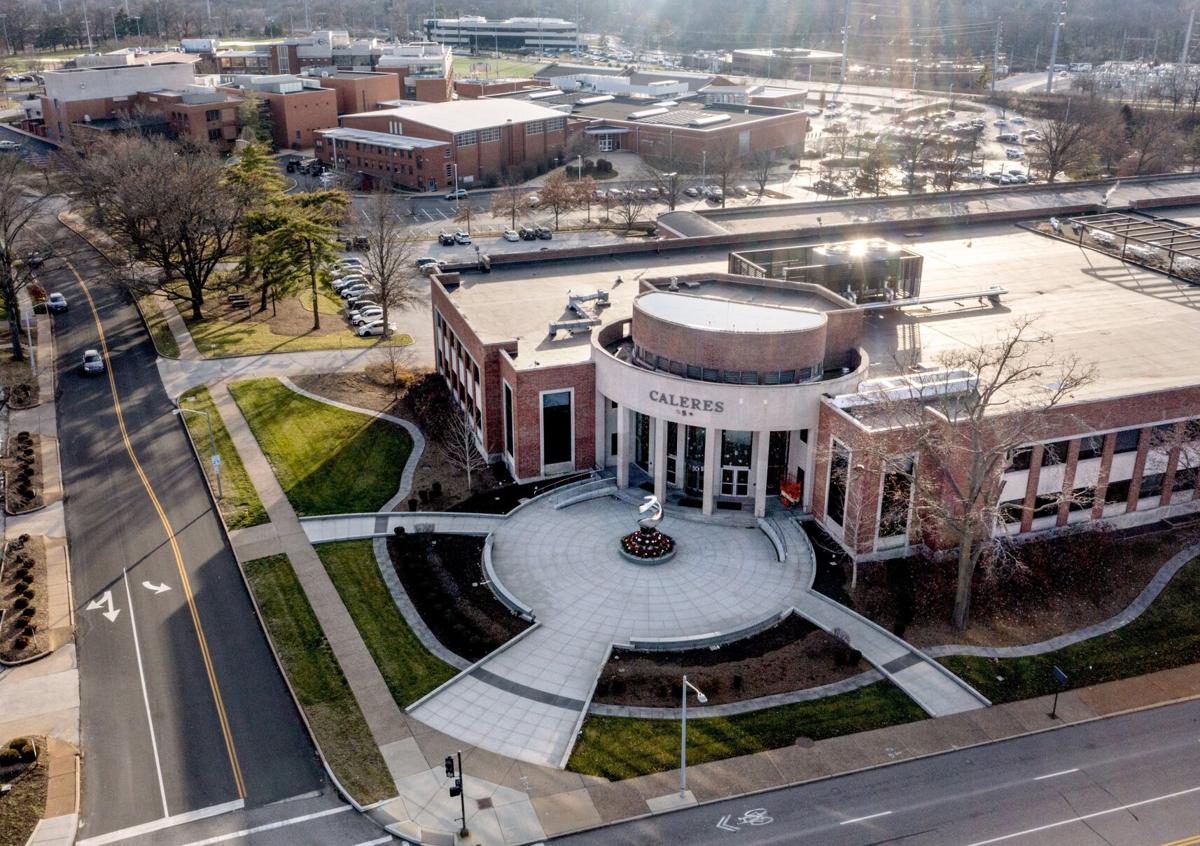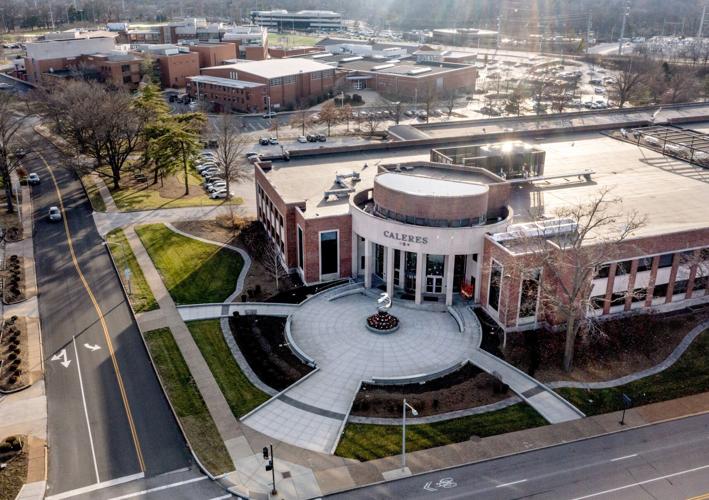CLAYTON — The Clayton Board of Education has terminated its contract to purchase the headquarters of global footwear company Caleres for $20.9 million after fierce backlash from the community.
“Although a significant number of attendees at last week’s public forum expressed reservations about the acquisition, we also received strong support for moving forward with the purchase via emails, phone calls, and an online petition. We have listened carefully to all perspectives, recognizing they reflect diverse viewpoints and demographics within the Clayton community,” reads a letter sent Monday by the board.
The school board will make it a priority to update its long-range facilities plan to reflect the district’s needs over the next 15 to 20 years, the letter said.
People are also reading…
Steph Kukuljan and other business reporters bring you insights into St. Louis-area real estate and development.
Caleres, formerly Brown Shoe Co., has for several years been trying to downsize from its 9-acre campus adjacent to Clayton High School. The property at 8300 Maryland Avenue includes 275,000 square feet over three buildings and is appraised by St. Louis County at $33.5 million.
“Our campus is still being actively marketed for sale, and our goal remains the same — to provide a flexible, modern workspace that meets the evolving needs of our associates and business,” said Caleres president and CEO Jay Schmidt in a statement Monday.
Michael Staenberg of The Staenberg Group real estate firm said Monday that he will continue to pursue a project at the site like the firm’s entertainment venue The Hub in Chesterfield.

Clayton Schools Superintendent Nisha Patel listens on Wednesday, Jan. 17, 2024, during a public forum at Wydown Middle School for Clayton residents to address the board's vote to purchase the Caleres company headquarters building adjacent to the Clayton High School campus.
Clayton Superintendent Nisha Patel announced on Jan. 2 that the school district would close on the property next month to create an “Empowerment Campus Project.” At a public forum Wednesday, school board members expressed varying ideas for the project, from a new football field to a performing arts center or even flipping it to a retail developer.
A majority of attendees were critical of the board for the project’s lack of details and potential costs, while a handful of current teachers and parents said they were buoyed by the opportunity to compete with other districts and private schools with a new high-tech facility.
Mayor Michelle Harris opposed the sale along with four former Clayton mayors. After the deal fell through, Harris said “the city of Clayton is 100% committed to continuing our historic partnership with the district, and appreciate any opportunity to be included in their long-term planning and land use discussions.”
The Caleres property has annual real estate taxes of $1.3 million, of which the city of Clayton receives about 8% and the school district receives close to half.
A hypothetical assessment of future commercial redevelopment of the site is estimated at $60 million, which would bring in $472,000 to the city and $2.7 million to the school district annually, according to city leaders.
Clayton City Manager David Gipson has not responded to questions about how the hypothetical value was calculated. The highest-valued property in Clayton, the Pierre Laclede business center at 7701 and 7731 Forsyth Boulevard, is assessed at $30 million.
At least two other potential sales of the Caleres property have collapsed in recent years. Local development firm Pier Property Group was slated to take over the campus until the deal fell through in October. Before that, Clayco’s realty arm CRG had a $500 million plan for the campus but backed out because the traffic and utilities improvements needed for the site would cost $15 million to $20 million, according to operating partner Jeff Tegethoff.
Media personality Charlie Brennan, who led a group of residents in opposition to the sale, said Monday he was glad the deal fell through.
“I hated to see the property taken off the tax rolls because I think both the city and the school district need the revenues,” Brennan said. “It was too expensive a purchase without a plan, and it really didn’t make too much sense. The city needs some retail tax dollars, something that would bring people together to make Clayton a little more lively.”
Brown has been part of the corporate name since the company's founding in 1878. Next month, however, that name will be dropped once shareholders approve the change on May 28. (Post-Dispatch video)


















